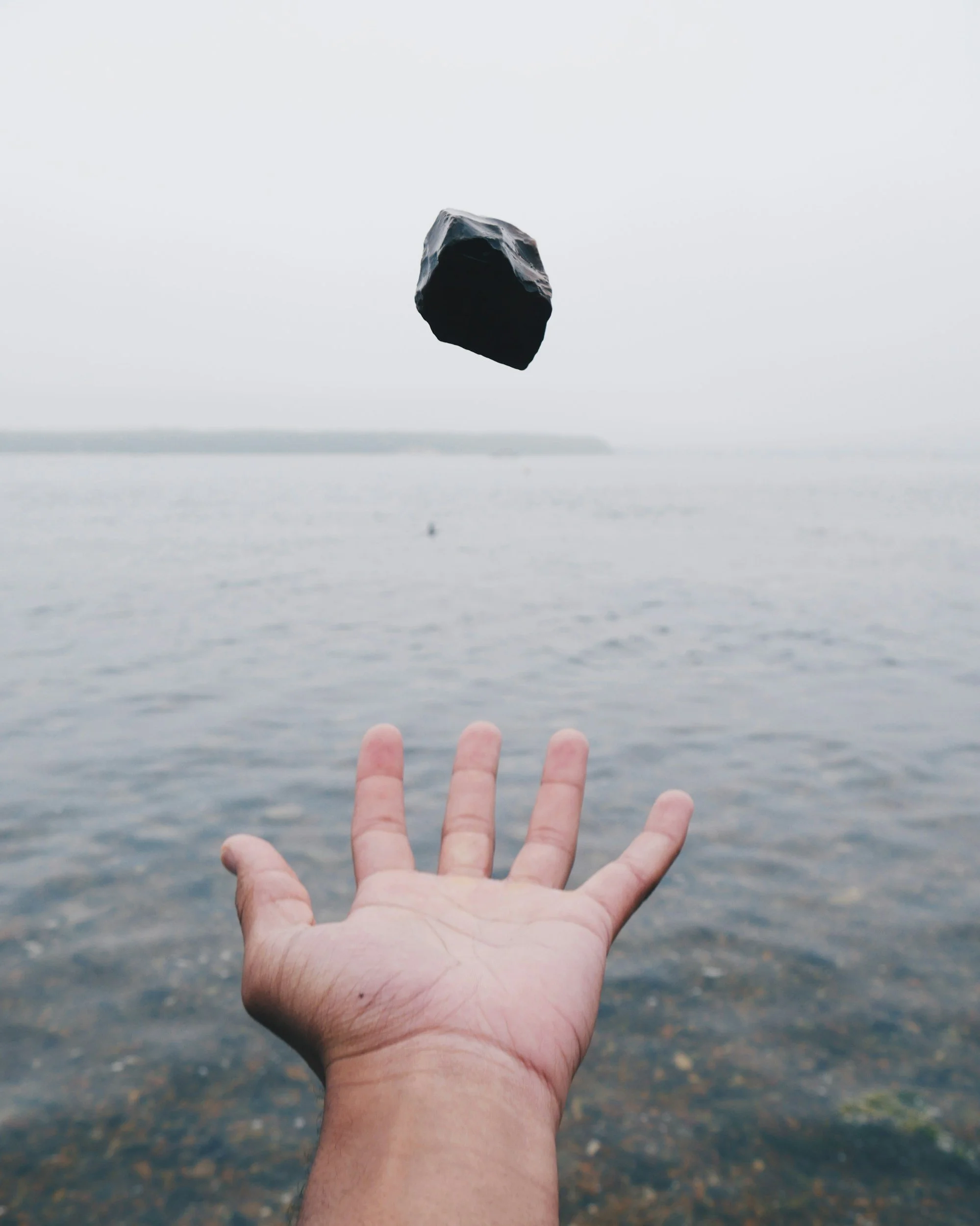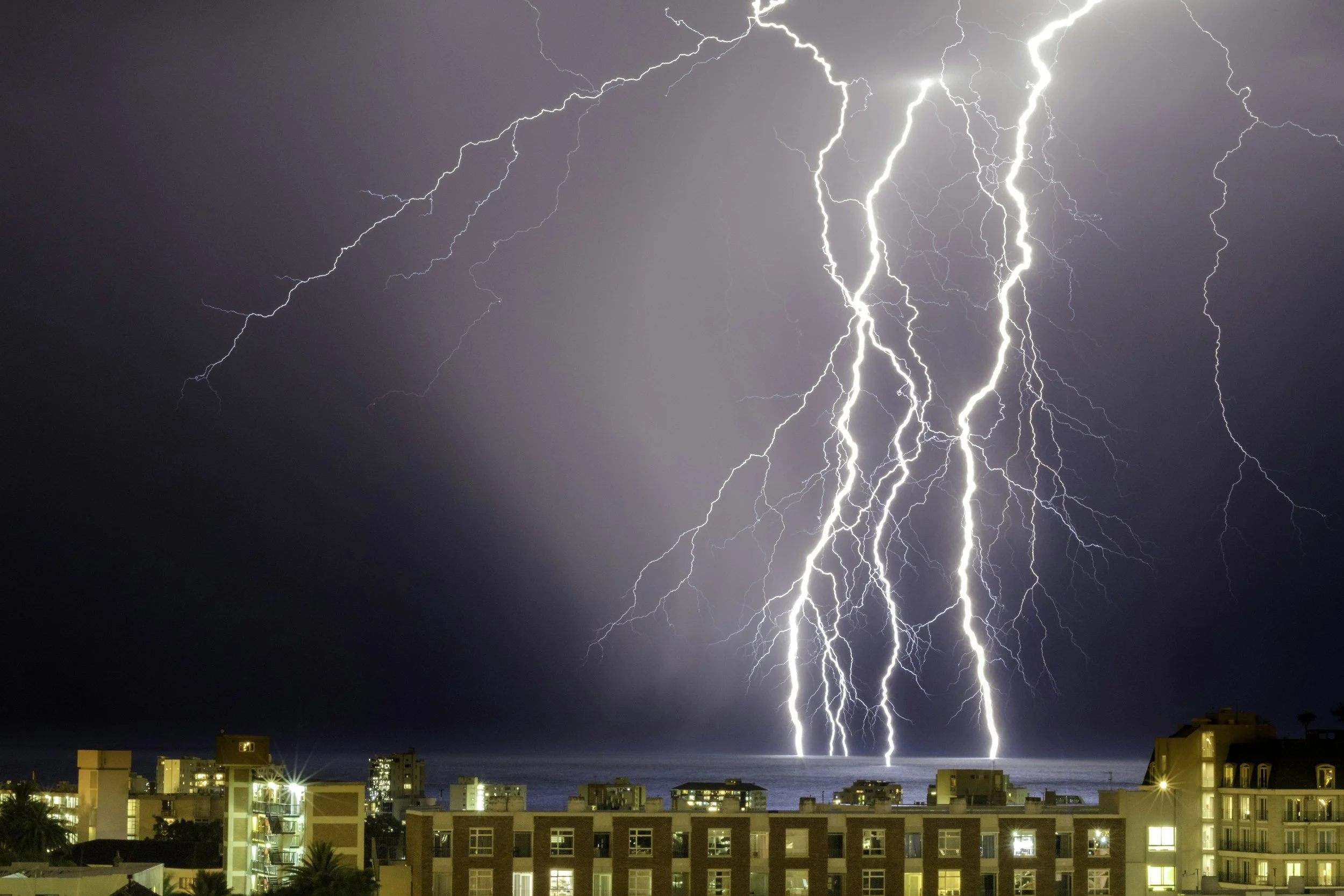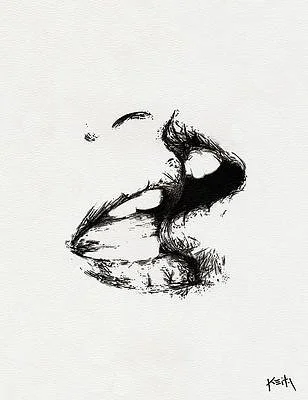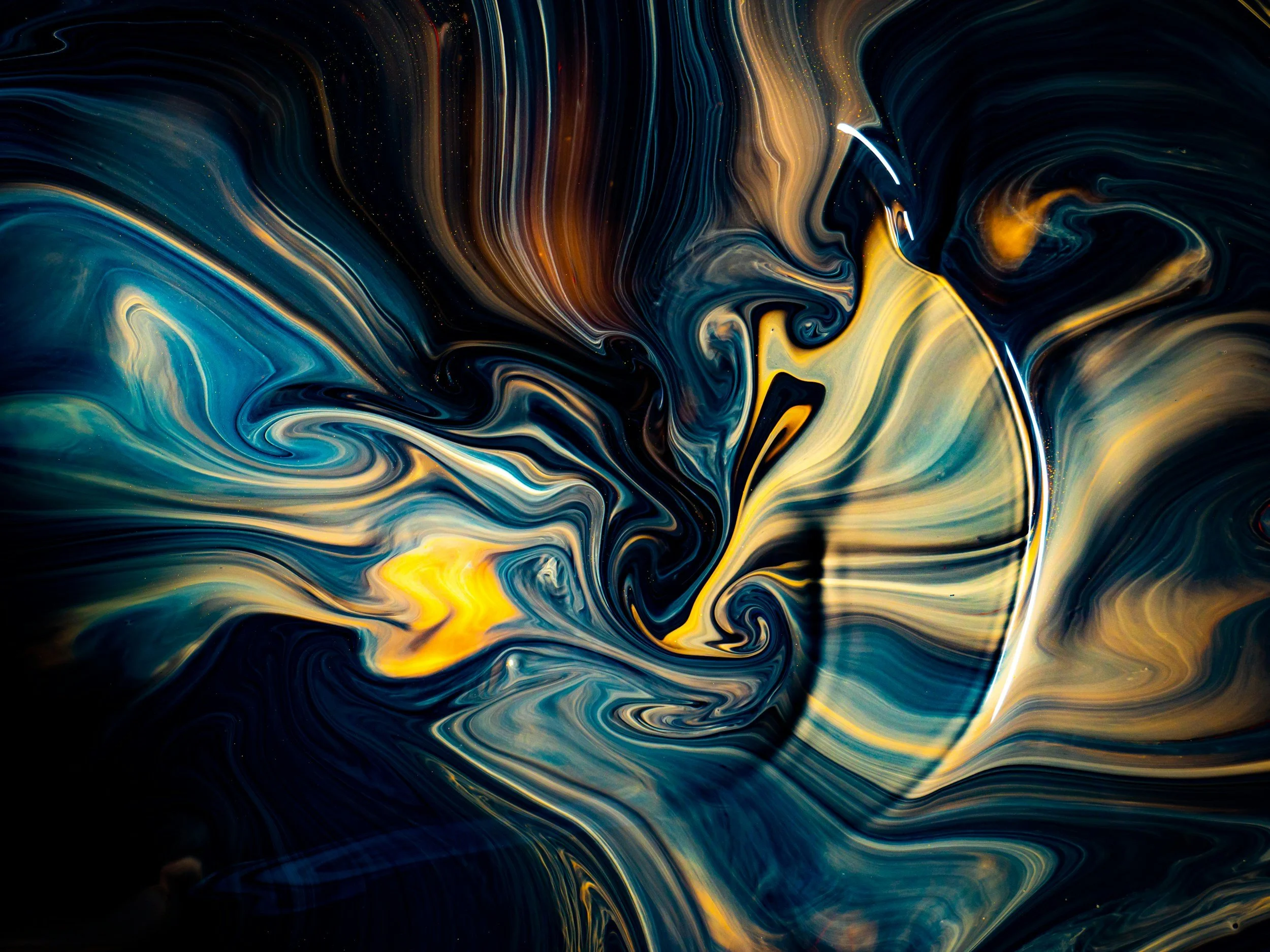Burning the Old Year
It’s time to burn the old year. May all you to-do lists be burnable.
By Naomi Shihab Nye
Photo by Thomas Park @thomascpark
Burning The Old Year
Letters swallow themselves in seconds.
Notes friends tied to the doorknob,
transparent scarlet paper,
sizzle like moth wings,
marry the air.
So much of any year is flammable,
lists of vegetables, partial poems.
Orange swirling flame of days,
so little is a stone.
Where there was something and suddenly isn’t,
an absence shouts, celebrates, leaves a space.
I begin again with the smallest numbers.
Quick dance, shuffle of losses and leaves,
only the things that I didn’t do
crackle after the blazing dies.
- By Naomi Shihab Nye
Ode To Forgetting the Year
I love Barbara Hamby, she is such a great poet, here is one of her gems
By BARBARA HAMBY
ODE TO FORGETTING THE YEAR
Forget the year, the parties where you drank too much,
said what you thought without thinking, danced so hard
you dislocated your hip, fainted in the kitchen,
while Gumbo, your hosts’ Jack Russell terrier,
looked you straight in the eye, bloomed into a boddhisattva,
lectured you on the six perfections while drunk people
with melting faces gathered around your shimmering corpse.
Then there was February when you should have been decapitated
for stupidity. Forget those days and the ones
when you faked a smile so stale it crumbled like a cookie
down the side of your face. Forget the crumbs and the mask
you wore and the tangle of Scotch tape you used to keep it in place,
but then you’d have to forget spring with its clouds of jasmine,
wild indigo, and the amaryllis with their pink and red faces,
your garden with its twelve tomato plants, squash, zucchini,
nine kinds of peppers, okra, and that disappointing row of corn.
Forget the corn, its stunted ears and brown oozing tips. Forgive
the worms that sucked their flesh like zombies
and forgive the bee that stung your arm, then stung your face, too.
While we’re at it, let’s forget 1974. You should have died that year,
or maybe you did. Resurrection’s a trick
you learned early. And 2003. You could have called in sick
those twelve months—sick and silly, illiterate and numb,
and summer, remember the day at the beach when the sun
began to explain Heidegger to you while thunderclouds
rumbled up from the horizon like Nazi submarines? The fried oysters
you ate later at Angelo’s were a consolation and the margaritas
with salt and ice. Remember how you begged the sullen teenaged waitress
to bring you a double, and double that, pleasepleaseplease.
And forget all the crime shows you watched,
the DNA samples, hair picked up with tweezers
and put in plastic bags, the grifters, conmen, and the husbands
who murdered their wives for money or just plain fun.
Forget them and the third grade and your second boyfriend,
who loved Blonde on Blonde as much as you did
but wanted something you wouldn’t be able to give anyone for years.
Forget movies, too, the Hollywood trash in which nothing happened
though they were loud and fast, and when they were over
time had passed, which was a blessing in itself. O blessed
is Wong Kar Wai and his cities of blue and rain.
Blessed is David Lynch, his Polish prostitutes juking
to Locomotion in a kitschy fifties bungalow. Blessed
is Jeff Buckley, his Hallelujah played a thousand times in your car
as you drove through Houston, its vacant lots
exploding with wild flowers and capsized shopping carts.
So forget the pizzas you ate, the ones you made from scratch
and the Dominoes ordered in darkest December,
the plonk you washed it down with and your Christmas tree
with the angel you found in Naples and the handmade Santas
your sons brought home from school, the ones with curling eyelashes
and vampire fangs. Forget their heartbreaks
and your sleepless nights like gift certificates
from the Twilight Zone, because January’s here,
and the stars are singing a song you heard on a street corner once,
so wild the pavement rippled, and it called you
like the night calls you with his monsters and his marble arms.
Barbara Hamby was born in New Orleans and raised in Honolulu. She is the author of seven books of poems, most recently Holoholo (2021), Bird Odyssey (2018) and On the Street of Divine Love: New and Selected Poems (2014), published by the University of Pittsburgh Press, which also published Babel (2004) and All-Night Lingo Tango (2009). Her first book, Delirium, won the Vassar Miller Prize, The Kate Tufts Award, and the Poetry Society of America’s Norma Farber First Book Award. Her second book, The Alphabet of Desire, won the New York University Press Prize for Poetry and was published in 1999 by New York University Press.
Dream
My 200th poem. A moment i wanted to celebrate with you,us:
Love is the only way! Peace does not need protection.
Amsterdam, Photo by Michael Stolt
My 200th poem. I am proud of myself. Through all the doubt and disbelief, the words have still wanted to come and manifest themselves through me. Grateful!
Dream
I was thinking of you, us:
Sitting around the campfire,
The flickering of the warm light,
The crackle and pop of desire.
Our bodies touching the way
flames do, melting into each other.
A sky full of twinkling stars.
The deep dark of the night forest.
The quiet between us. As loud as
Our beating hearts. Our breaths
Building white bridges of hope
between ripe lips. Dreams of reflection
bouncing off our eyes into the flames.
Soft blankets wrapped around us like the night.
Oh, the light of love and desire,
Sitting next to each other patiently.
The log cabin behind us awaits.
Come my love, take my hand, stand.
Come build the bridges to our dreams.
- By Michael Stolt
#200
Take Notice
In a world gone completely mad with faces in screens, the need to take notice has never been more urgent. Take notice of the little things. I mean it. Take notice of the tiniest things and make your life wonderful.
Photo by Joshua Earle @joshuaearle
Take Notice
Take notice of the wind blowing wild and free,
Through your hair across the sea.
Take notice of the earth’s sweet rotation,
Placing gentle sunsets into motion.
Take notice, sometimes when,
Thoughts take you back, in time to then……..
Notice them, whose love you cherish,
Lack of maintenance will make it perish.
Take notice of friends gone astray,
Pick up your pen and write today.
Take notice of Life, we have only one,
Live it in apathy and your reward is none.
Finally, be generous with the time you spend,
For all too quickly we’ve reached the end.
- By Michael Stolt
#1
The News Told of the Terror
Natural disasters, are just that, natural. That they have become more frequent due to climate change does not alter the fact that they are natural. War and injustice are unnatural. I wrote this poem in response the way the news portrayed a natural phenomena.
Photo by Dasha Urvachova @dashikka
I wrote this poem in April 2009 in response to the earthquake in Italy. I was amazed by the coverage. CNN and the like made it out to be as if Mother Nature was the culprit and the malevelant one. It made me mad so I wrote this poem. Fast forward to anno 2020, with wild fires in California, Hurricanes in Florida and the retreating ice sheet of Greenland that will never be restored. We are killing our planet. We are parasites. We are all complicit, some, read Donald Trump, more than others, but we all are guilty. Just by our breathing.
The News Told Of The Terror
The news told of the terror
in all its shaken aspect;
bodies collapsed by
collapsing buildings.
The horror shaken out in
the everyday lives of those-left.
Its shaking measured enough
to break the Lego of man’s ego.
Shaken as if laid upon by
Parkinson diseased hands,
until every stone was turned.
No war was fought here!
No unnatural deaths
occurred here, in this natural
disaster. No, nature takes its
course and cripples the cities
just as the cities cripple it.
Nature’s innocence shows
no remorse for being itself,
but rejoices in the quite of
a new day. All fury forgotten
among the rubbled streets,
only broken lives and the
memory of being broken remain.
“How could this happen to us” ,
go the cries of the happened upon,
“Why has God forsaken us?”, atheist
and believer simultaneously say.
Where are the same cries and same
remorse for the dead , deadened
in man’s conflict against itself?
No, it is perfectly acceptable to
starve and enslave the poor;
enrich to protect the rich;
kill and be killed for the sake
of saying ,”I am right.”
It is not the earth’s fault that
man plants domesticity on the
fault line, or lines up concrete
shacks where no beast tread.
Why have we so humanised
the elements of nature that
we think them even scarcely
capable of the same measure
of cruelty as us?
- By Michael Stolt
#56
Antics in the Sky
Electrical storms are dramatic and call up images of Antics in the sky.
Photo by Garth Manthe @garth_manthe
Johannesburg is renowned for it’s electrical storms in the summer. I remember those big black clouds moving in. It felt like somebody had shut the curtains and turned on a vacuum sealer. The air was being sucked out of the sky by the approaching weather front. You could feel the air pressure drop. The darkness was comforting in a way. The black sky tumultous and streaked with lightning. The lightning would come closer and the thunder become louder as it rolled through the heavens like great big waves - you could follow it with your eyes. It is so dramatic.
Antics in the Sky
The black sky, lightning bleached,
abducts the air and electrocutes
it to the ground with a crack.
Drama abounds in the stained sky.
Trees bowing to their master the wind,
Breaking under his demands. We
are all captive to the antics of the
god’s in the sky. Some awed, some floored.
- By Michael Stolt
#76
Our Minds
“Representation of the world, like the world itself, is the work of men; they describe it from their own point of view, which they confuse with the absolute truth.” - Simone de Beauvoir
This representation make the minds of women a battlefield. We must rise up against this injustice and oppression. A poem in honour of women.
Photo by Jr Korpa @jrkorpa
“I hope you will not turn her head into a battleground.” Nsuuta talking to Kirabo’s grandmother in The First Woman by Jennifer Nansubuga Makumbi
———————————————————————————————————————————————
“Representation of the world, like the world itself, is the work of men; they describe it from their own point of view, which they confuse with the absolute truth.” - Simone de Beauvoir
This representation make the minds of women a battlefield. We must rise up against this injustice and oppression. A poem in honour of women.
———————————————————————————————————————————————
Our Minds
Don’t make our minds a battleground
Where wars of worthiness are to be fought:
There is enough war and destruction.
Don’t make our minds a minefield of the
Cultural-self trying to blow up the true-self.
Don’t scuttle our dreams with your own,
Don’t bombard the city of our choices,
But hear our voices – not as your own –
For you do not exist in the future.
Don’t make our minds a battlefield where
We wage war against our bodies and your
Insecurities. There are no securities – even
banks fail.
Our bodies are beautiful. All of them.
All sexual choices and love is right
and part of the same story.
Don’t make our minds a place where unrest lives.
Our minds are a place to feel safe and sound. There is no
Worse hell than that – an unsound mind.
It is a human rights violation – one the oppressor
Knows well.
Don’t make our minds a place where our worthiness
Comes from the making of a marriage or baby:
There is no value in these shackles of despair.
Shackle nothing, freedom always finds its way.
Let our minds and bodies speak for themselves
In the power of their own decisions, creations and projects.
Don’t make our minds the obstacle that stands
In the way of us finding our beautiful meaning.
Let us break down all barriers and pre conceptions.
Daughters, heed the battlegrounds in your minds
created
By well meaning, yet misguided and damaged, people.
Dear other, your battlefields too have left scars.
Never give us the tools to weaponise our
Minds against ourselves or others, the earth
And all living creatures depend upon this.
May we make up our own minds!
- By Michael Stolt
#102
The Amazon is Dying
There is no Planet B, yet politicians the world over cannot take the right steps even amidst rising pressure from voters. What will it take? A poem about our destruction and madness.
Picture courtesy of Voices of Youth
“We must change almost everything in our current societies.
The bigger your carbon footprint - the bigger your moral duty.
The bigger your platform - the bigger your responsibility.
Adults keep saying: 'We owe it to the young people to given them hope.'
But I don't want your hope.
I don't want you to be hopeful.
I want you to panic.
I want you to feel the fear I feel every day.
And then I want you to act.
I want you to act as you would in a crisis.
I want you to act as if our house is on fire.
Because it is.”
― Greta Thunberg, No One Is Too Small to Make a Difference
The Amazon is Dying
The Amazon is dying
to give space for this art,
space for growing cane and cows;
the world here wants them cheap,
but not too cheap that we
loose our sleep,
over children labouring their
childhood away to feed ours.
Free trade is a great idea -
they are free to trade with us.
In pursuit of profit
the world has gone mad:
Fish for shrimp in Scotland,
Peel the things in Thailand,
Ship them back to Scotland,
Export them to the world,
Destroying local trade and
Environment for your haul;
globalisation this is called.
To give space for life – mine,
yours, the world is dying.
- By Michael Stolt
#52
Hold Your Own
A beautiful poem by Kate Tempest. Hold your own and be your beautiful kind self.
By Kate Tempest
Photo by Yeshi Kangrang @omgitsyeshi
Hold Your Own
When time pulls lives apart
Hold your own
When everything is fluid, and when nothing can be known with any certainty
Hold your own
Hold it 'til you feel it there
As dark, and dense, and wet as earth
As vast, and bright, and sweet as air
When all there is
Is knowing that you feel what you are feeling
Hold your own
Ask your hands to know the things they hold
I know the days are reeling past in such squealing blasts
But stop for breath and you will know it's yours
Swaying like an open door when storms are coming
Hold
Time is an onslaught
Love is a mission
We work for vocations until
In remission
We wish we'd had patience and given more time to our children
Feel each decision that you make
Make it, hold it
Hold your own
Hold your lovers
Hold their hands
Hold their breasts in your hands, like your hands were their bras
Hold their face in your palms like a prayer
Hold them all night, feel them hold back
Don't hold back
Hold your own
Every pain
Every grievance
Every stab of shame
Every day spent with a demon in your brain giving chase
Hold it
Know the wolves that hunt you
In time, they will be the dogs that bring your slippers
Love them right and you will feel them kiss you when they come to bite
Hot snouts digging out your cuddles with their bloody muzzles
Hold
Nothing you can buy will ever make you more whole
This whole thing thrives on us feeling always incomplete
And it is why we will search for happiness in whatever thing it is we crave in the moment
And it is why we can never really find it there
It is why you will sit there with the lover that you fought for
In the car you sweated years to buy
Wearing the ring you dreamed of all your life
And some part of you will still be unsure that this is what you really want
Stop craving
Hold your own
But if you're satisfied with where you're at, with who you are
You won't need to buy new make-up, or new outfits, or new pots and pans
To cook new exciting recipes
For new exciting people
To make yourself feel like the new exciting person, you think you're supposed to be
Happiness, the brand, is not happiness
We are smarter than they think we are
They take us all for idiots
But that's their problem
When we behave like idiots
It becomes our problem
So hold your own
Breathe deep on a freezing beach
Taste the salt of friendship
Notice the movement of a stranger
Hold your own
And let it be
CatchingPlease visit this amazing spoken word poet at her website:
Pitter Patter
As a child, do you remember the rain coming. I do. this is a poem dedicated to chilhood memories and the love of the sky for the earth.
Photograph by Debra Brewster @dbrewster66
Pitter-Patter
Pitter-patter, the rain falls softly.
The iron roof becomes nature’s instrument –
Ting -tang-ting-tang,
A kettle drum drummed up by the rain.
It is soothing in a dry place;
The sound of rain – ting-tang-ting-tang
Pitter-patter
Where rain is often somewhere else
Visiting places it knows well.
When it comes here, it is hesitant,
Shy almost. First a few drops,
Testing the ground as it were.
The first few drops come spittingly, hit and miss.
Tong…tong…tong, a heartbeat, a throb of life.
The sound on the tin roof is one of hope.
The next splatters tong…tong… ting
Silences our chatter because we are praying,
Urging the sky to shed its shyness
And open up.
As if the rain has heard our thoughts,
More drops start to fall and the tin roof
Starts to chime away – ting-tong- tang.
There is news on the roof from the heavens
And we sit and listen so spellbound no interpreter is needed.
In a gesture of starting slow, mother nature seems
To be asking, “Are you ready, my love?”
In a silent discourse we are not meant to hear
Or understand, the answer comes.
Mother nature opens up the heavens and beautiful
Rain comes pouring down.
The sound on the tin roof is a cacophony. That kettle drum
Has become a frenzied bunch of zombies trying to beat their way in.
We all start breathing again, only now noticing
That we were holding our breathes all along.
The smell of rain on the highveld air is sweet.
It awakens the soul. It smells of pure joy.
It smells like soil that is smiling, rich and creamy
With an aftertaste of life.
This smell is what gets us up, we cannot keep still any longer.
A jumping bean collective – all arms and legs.
There is no holding joy back. Not even man’s best
Efforts or machinery can control it.
We are out the back door, naked.
Our clothes lie abandoned and lifeless under the drumming roof.
Do you know what freedom feels like?
It is being naked,
running and jumping and rolling in the grass
while clean cold rain
Frolics over the hills and dales of your skin.
We are squealing with delight.
Have you ever had a sore face from smiling?
The rain is no longer shy – she is now laughing with us.
It is a beautiful sight and sound. The pitter patter and splash
Of rain.
The rain settles in to an easy tempo, one that quietens the world and darkens
The sky. One that will continue for hours.
It is a cosiness, a gentleness the world desperately needs.
We go back inside where it is dry.
Our bones shiver.
A hot bath and a cup of tea restores us to warmth.
Under the blankets with a book we creep – yet rain gazing keeps our eyes
On the story happening outside.
The sounds of rain touching trees, roofs and earth is the
Sound of gentleness, growth and renewal.
The soul can rest in this.
We take deep breathes, the world slows and goes quiet.
When we wake the rain is gone. She could not wait for us.
We are not sad, her visit was magic, as always.
Pitter- patter the rain’s memory clear and cold on our own.
- By Michael Stolt
#105
A Secret
The beauty of poetry surprises me again and again. Even though poetry is not mainstream or something one could earn one’s living from, its about love; love of words and ideas and just love itself. The well known poets are good, to be sure, but it is gems like this poem that makes my heart skip a beat and fall in love, all over again, with poetry. Long live the poets!!
© Turtle Caps Art Queens Boro New York City.. street art, painter, muralist, graffiti, illustrations.
The beauty of poetry surprises me again and again. Even though poetry is not mainstream or something one could earn one’s living from, its about love; love of words and ideas and just love itself. The well known poets are good, to be sure, but it is gems like this poem below that makes my heart skip a beat and fall in love, all over again, with poetry. Long live the poets!!
ps. this poem was posted on Allpoetry.com, find it here , go check it out.
A Secret
When I was a young man,
with no more sense than patience,
I found a sort of backstairs, backstreet
love that bloomed only in
the cul-de-sacs of alleys
at the rear of shops, or the shade
of churchyard linden trees.
I would go to her at nightfall
when the summer’s dust
was still warm on the roads
or rain had sweetened them,
keeping always to the dark pools
between the street lights,
the gloom of avenues
where tall spreading planes
occluded the watchful moon.
I concealed my love, as a child
hides a treasured find
in a sequestered place,
stealing out to caress it, careful never
to confess it to priest or teacher,
police or parent; I sealed
our secret from all prying eyes,
denied her by burial
under a hundredweight of silence.
The years between have tombed
her name like the sunken bowsprit
of a ship long graved
beneath the sea’s immensity;
only I know the quiet of those old
night pilgrimages to see her
and yet no dearer thing to me
than the remembered likeness of her face,
so that in dreams I find myself
running down moonlit streets
in search of our lost love.
- by EugeneM
Free Association Day
Freely associate the disassociation of thought. A poem
Photo by Darya Tryfanava
@darya_tryfanava
Free Association Day
Free association day:
Words tumbling
Like water off a cliff
And still no shape,
No form, just freely
Associated, like people
In a lost cause.
Are we a lost cause?
Do words and association
No longer matter? Are
We just matter, having to
Calm down brows and colons?
Take deep breathes,
Not deep sea mining.
Mind the extinction,
Cause it’s ‘this gap’
That’s the problem.
Free words in a computer
On a march to censorship.
How to celebrate free
Association day? Disassociate.
- by Michael Stolt
#208
Home
Powerful, indictment, manifesto, reality, rally, war-cry. It’s all of these things. Please don’t look away. A poem by Warsan Shire
Photograph by Matteo Paganelli @matteopaga
I had the privilege to see Somali-British poet Warsan Shire at the 55th International Poetry Festival 2025 in Rotterdam. She shared this poem in her reading. Powerful, indictment, manifesto, reality, rally, war-cry. This poem is all of these things and more. Please don’t look away.
HOME
I
No one leaves home unless home is the mouth of a shark. You only
run for the border when you see the whole city running as well. The
boy you went to school with, who kissed you dizzy behind the old tin
factory, is holding a gun bigger than his body. You only leave home
when home won’t let you stay.
No one would leave home unless home chased you. It’s not
something you ever thought about doing, so when you did, you
carried the anthem under your breath, waiting until the airport toilet
to tear up the passport and swallow, each mournful mouthful making
it clear you would not be going back.
No one puts their children in a boat, unless the water is safer than
the land. No one would choose days and nights in the stomach of a
truck, unless the miles travelled meant something more than journey.
No one would choose to crawl under fences, beaten until your
shadow leaves, raped, forced off the boat because you are darker,
drowned, sold, starved, shot at the border like a sick animal, pitied.
No one would choose to make a refugee camp home for a year
or two or ten, stripped and searched, finding prison everywhere. And
if you were to survive, greeted on the other side— Go home Blacks,
dirty refugees, sucking our country dry of milk, dark with their hands
out, smell strange, savage, look what they’ve done to their own
countries, what will they do to ours?
The insults are easier to swallow than finding your child’s body in
the rubble.
I want to go home, but home is the mouth of a shark. Home is the
barrel of a gun. No one would leave home unless home chased you
to the shore. No one would leave home until home is a voice in your ear
saying— leave, run, now. I don’t know what I’ve become.
II
I don’t know where I’m going. Where I came from is disappearing. I am
unwelcome. My beauty is not beauty here. My body is burning with the
shame of not belonging, my body is longing. I am the sin of memory and
the absence of memory. I watch the news and my mouth becomes a sink
full of blood. The lines, forms, people at the desks, calling cards,
immigration officers, the looks on the street, the cold settling deep into
my bones, the English classes at night, the distance I am from home.
Alhamdulillah, all of this is better than the scent of a woman completely
on fire, a truckload of men who look like my father— pulling out my
teeth and nails. All these men between my legs, a gun, a promise, a lie,
his name, his flag, his language, his manhood in my mouth.
© 2022, Warsan Shire
From: Bless the Daughter Raised by a Voice in Her Head
Publisher: Penguin Random house,
Branded
Being branded is a curious part of our modern culture. Paying to wear a brand. Curious and conscious, the author takes a new look at the branded culture
Photograph by Austin Chan
@austinchan
Branded
He sees cars barking their
brands in the streets;
oblivious to the noise they
make, the line they draw.
Branded owners stepping
out of branded cars.
He wonders if it hurts to be
completely branded top-to-
toe? He hears the owners of
the branded people carriers
talking about their branding,
proud that they allowed it,
even prouder, louder about
how much it cost them.
He jumps at the barking bite;
branded, running out of sight.
- By Michael Stolt
#63
Burning Drift-Wood
As low my fires of drift-wood burn,
I hear that sea's deep sounds increase,
And, fair in sunset light, discern
Its mirage-lifted Isles of Peace.
by John Greenleaf Whittier
Photo by Benjamin DeYoung @benjamin_deyoung
Burning Drift-Wood
Before my drift-wood fire I sit,
And see, with every waif I burn,
Old dreams and fancies coloring it,
And folly's unlaid ghosts return.
O ships of mine, whose swift keels cleft
The enchanted sea on which they sailed,
Are these poor fragments only left
Of vain desires and hopes that failed?
Did I not watch from them the light
Of sunset on my towers in Spain,
And see, far off, uploom in sight
The Fortunate Isles I might not gain?
Did sudden lift of fog reveal
Arcadia's vales of song and spring,
And did I pass, with grazing keel,
The rocks whereon the sirens sing?
Have I not drifted hard upon
The unmapped regions lost to man,
The cloud-pitched tents of Prester John,
The palace domes of Kubla Khan?
Did land winds blow from jasmine flowers,
Where Youth the ageless Fountain fills?
Did Love make sign from rose blown bowers,
And gold from Eldorado's hills?
Alas! the gallant ships, that sailed
On blind Adventure's errand sent,
Howe'er they laid their courses, failed
To reach the haven of Content.
And of my ventures, those alone
Which Love had freighted, safely sped,
Seeking a good beyond my own,
By clear-eyed Duty piloted.
O mariners, hoping still to meet
The luck Arabian voyagers met,
And find in Bagdad's moonlit street,
Haroun al Raschid walking yet,
Take with you, on your Sea of Dreams,
The fair, fond fancies dear to youth.
I turn from all that only seems,
And seek the sober grounds of truth.
What matter that it is not May,
That birds have flown, and trees are bare,
That darker grows the shortening day,
And colder blows the wintry air!
The wrecks of passion and desire,
The castles I no more rebuild,
May fitly feed my drift-wood fire,
And warm the hands that age has chilled.
Whatever perished with my ships,
I only know the best remains;
A song of praise is on my lips
For losses which are now my gains.
Heap high my hearth! No worth is lost;
No wisdom with the folly dies.
Burn on, poor shreds, your holocaust
Shall be my evening sacrifice!
Far more than all I dared to dream,
Unsought before my door I see;
On wings of fire and steeds of steam
The world's great wonders come to me,
And holier signs, unmarked before,
Of Love to seek and Power to save, --
The righting of the wronged and poor,
The man evolving from the slave;
And life, no longer chance or fate,
Safe in the gracious Fatherhood.
I fold o'er-wearied hands and wait,
In full assurance of the good.
And well the waiting time must be,
Though brief or long its granted days,
If Faith and Hope and Charity
Sit by my evening hearth-fire's blaze.
And with them, friends whom Heaven has spared,
Whose love my heart has comforted,
And, sharing all my joys, has shared
My tender memories of the dead, --
Dear souls who left us lonely here,
Bound on their last, long voyage, to whom
We, day by day, are drawing near,
Where every bark has sailing room.
I know the solemn monotone
Of waters calling unto me;
I know from whence the airs have blown
That whisper of the Eternal Sea.
As low my fires of drift-wood burn,
I hear that sea's deep sounds increase,
And, fair in sunset light, discern
Its mirage-lifted Isles of Peace.
This Lapse Of Time
Have you ever thought about time and how it can be so many things, illusionary, a boundary, a freedom, a friend, a foe. Exploring some thoughts in this quirky poem. Enjoy
Photo by Dan Cristian Paduret @dancristianpaduret
This Lapse Of Time
Bordering on the benign
this lapse of time;
that another wrinkle sets,
or a lost memory gets.
That adds its subtractions
To our longevity fabrications.
The moments of summer are gone,
Wanting them forever, is that wrong?
It brings joy just sitting and reading on the grass,
Letting life and the warm summer sun pass.
Feeling the whole amazing universe
Well up in me, holy moly I’m ready to burst.
And yet this same sun that our life measures,
Mixes in the sadness with life’s pleasures.
It takes us calmly and surely to our graves,
And in so doing, a place for someone else saves.
Without forethought or grief, time is a belief.
Knowing that it isn’t personal, may be a relief.
Bordering on the malign
This lapse of time,
That forever marches on
Until we are all very gone.
- By Michael Stolt
#88
The Mad Farmer Liberation Front
Manifesto: The Mad Farmer Liberation Front by Wendell Berry
Photo by Priscilla Gyamf @priscillag
Manifesto: The Mad Farmer Liberation Front
by Wendell Berry
Love the quick profit, the annual raise,
vacation with pay. Want more
of everything ready-made. Be afraid
to know your neighbors and to die.
And you will have a window in your head.
Not even your future will be a mystery
any more. Your mind will be punched in a card
and shut away in a little drawer.
When they want you to buy something
they will call you. When they want you
to die for profit they will let you know.
So, friends, every day do something
that won’t compute. Love the Lord.
Love the world. Work for nothing.
Take all that you have and be poor.
Love someone who does not deserve it.
Denounce the government and embrace
the flag. Hope to live in that free
republic for which it stands.
Give your approval to all you cannot
understand. Praise ignorance, for what man
has not encountered he has not destroyed.
Ask the questions that have no answers.
Invest in the millennium. Plant sequoias.
Say that your main crop is the forest
that you did not plant,
that you will not live to harvest.
Say that the leaves are harvested
when they have rotted into the mold.
Call that profit. Prophesy such returns.
Put your faith in the two inches of humus
that will build under the trees
every thousand years.
Listen to carrion — put your ear
close, and hear the faint chattering
of the songs that are to come.
Expect the end of the world. Laugh.
Laughter is immeasurable. Be joyful
though you have considered all the facts.
So long as women do not go cheap
for power, please women more than men.
Ask yourself: Will this satisfy
a woman satisfied to bear a child?
Will this disturb the sleep
of a woman near to giving birth?
Go with your love to the fields.
Lie easy in the shade. Rest your head
in her lap. Swear allegiance
to what is nighest your thoughts.
As soon as the generals and the politicos
can predict the motions of your mind,
lose it. Leave it as a sign
to mark the false trail, the way
you didn’t go. Be like the fox
who makes more tracks than necessary,
some in the wrong direction.
Practice resurrection.
Planets and Stars
Because you move me Towards you, planets
And stars pull. You rule.
Photo by Greg Rakozy @grakozy
Planets and Stars
Because you move me,
You turn solid into liquid,
Vision into emotion.
You move me, in me.
A thousand miles
I have moved inside.
Because you move me
Towards you, planets
And stars pull. You rule.
You move me to places
I never thought existed.
I don’t resist. I move.
Because you move me,
I move boundaries;
Existential boundaries.
Moulding a new me
To a new you. Concrete
Jelly moving mountains.
To be moved. Conceived anew.
Because you move me
I move in all ways possible.
- By Michael Stolt
#227
Rainbow
What is a rainbow? A message, a story, a symbol. Prismed light gives us insight.
Photo by Jorge Fernadez Salas @jorgefdezsalas
Rainbow
A rainbow is a message revealed.
A rainbow is a story told.
A rainbow is a symbol inprismed.
Within those tiny raindrops concealed
Is an important message revealed:
White is only a man-made illusion!
Give it up, stop the bloody confusion.
In the sky throughout all our history
It’s always been there, saying, “Mystery!”
Through the splitting of the light
Women have seen the message bright.
All people are womb born – it’s magical
And love a threat to war – it’s practical.
Yet, this message remains in a bottle,
One that man can easily throttle.
The sky says, ‘Tame not the elements so,’
For even the eternal rainbow may go.
A rainbow is a story told:
At the end of which, a pot of gold.
Of animals in an Ark and fables
That we still believe through cables.
And in it we fashion a pot of luck
In which our modern world is stuck.
It tells a story of dark clouds and rain
And the moment we see the sun again.
It is the story of a mass extinction
and the urgent need for human cohesion.
Sadly, it will never come, and so we run
Headlong into disaster for our fun.
A rainbow is a symbol inprismed and
From the elements of pain chiselled.
In labour of people as a symbol of rights
Infringed upon by white men’s frights.
Get real, white men will always steal,
Because they do not know how to be real.
And so a flag must fly for the silenced voices
WHO cannot make their own damn choices.
The rainbow did not want to be this,
A thing of hope in a world amiss.
It just wanted to be alone in the sky,
Projecting beauty - its colours, not asking “Why?”
- by Michael Stolt
#101







































